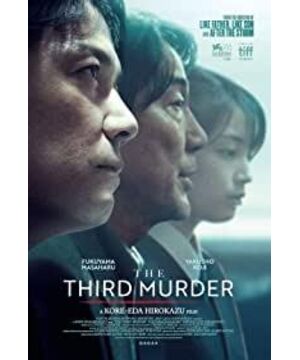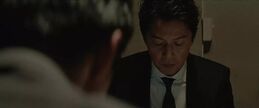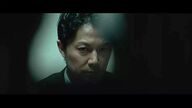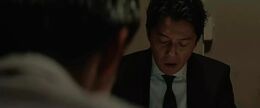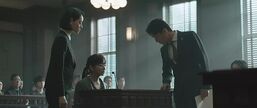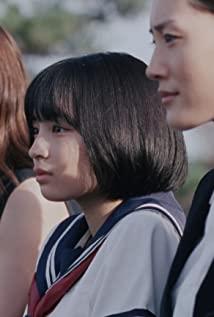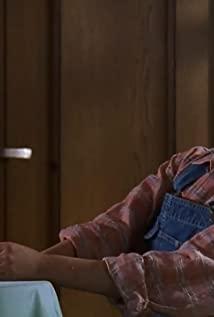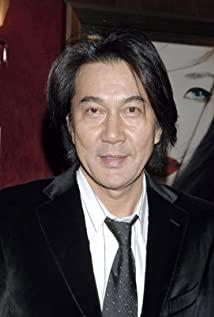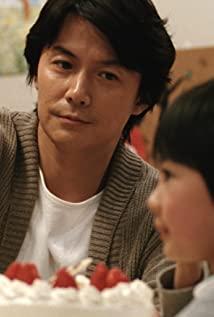"The Third Suspect" is this year's surprise. It is Mr. Hirokazu Koreeda's work that sees through a complex structure from a very small incision. It is rich in layers but very concise in expression. It is like throwing a stone into a deep pool. The instantaneous ripples give you a hint about the overall situation, but the so-called overall situation is deep. There is no bottom, the film actually just gave the audience a theme that they can think about all the time, and there is no definite answer.
This movie actually has a lot of brilliant performance techniques. In traditional reasoning films, everyone would speculate who the murderer is. Or some point out the murderer and let the audience speculate on his motive. At the beginning of this film, the scene of the murder of Yakusuo Koji was announced to the public, but as the plot progresses, the audience will find that he, who has confessed his guilt, is constantly lying about the details. With the disclosure of a series of incidents such as sexual assault and forgery, who the murderer is has become confusing again, and Koji Yakusho also began to perform astonishingly. Speculating on his motives for lying has become the biggest attraction.
And Masaharu Fukuyama, as the defense lawyer of Koji Koji, the two of them had a very exciting drama. Masaharu Fukuyama is acting in this lawsuit. Obviously, he will be subject to a certain degree of "trial" morally, but as Ling said, "no one will tell the truth in court." After all, the law does not look at facts and only speaks about evidence. Masaharu Fukuyama uses everything The means hoped to commute the sentence of Guangji in the prison... In the case of discovering more evidence of sexual assault, they already had the chance to win. At this time, not long after the trial, there was a "shattering reversal"...
Yakusho Hiroji suddenly pleaded not guilty! He asked Masaharu Fukuyama, whether he believed him or not, and told the "truth" in the collapse... I was almost suffocated by that part of the performance. Such a hysterical struggle obviously does not conform to all logic. I believe that when the audience sees this, they will almost collapse after being tossed for a long time. This is like walking on a long blade...
But the beauty of this episode is that Yakusuo Hiroshi used an astonishing acting skill to almost deceive the audience, making us even mistake the murderer for someone else, making us really think he was wronged . Personally, I think this performance can be regarded as a performance that can be remembered in the history of film. What is the intention of this setting? I believe that the dialogue between Masaharu Fukuyama and Koji Yakusho through the glass gave a "truth" that is closest to the "truth", giving this film a kind of unbelievable Indulgent high-quality texture.
In fact, it doesn't matter what the truth is, the prisoner has already achieved his goal, which is to successfully be determined by others to his own life and death. As the prisoner said in the ending, all the stories are made up by you, if only it were as good as you said.
Making up so-called truths, beautiful stories of inability to look directly at one's own crimes, words to excuse prisoners, these are lawyers' jobs. It's not about the pursuit of truth, just to work, just to win. So what is the essential difference between the lies that prisoners keep making up to achieve their own goals, and the wonderful stories that lawyers fantasize for the success of their work?
However, even if he is a prisoner, at least I can sense whether he is a total villain from the anger of the sentence "he doesn't deserve to live in the world", the tenderness in the letter, and the smile in the photo with Suzu Hirose. However, the suspect is a character with an extremely rich portrayal. He is cruel (killing several other canaries) but gentle (letting go of a canary and building a grave), and these shapes provide the basis for all subsequent actions. for a certain reason.
So, combining these with the follow-up, perhaps we can understand that only by constantly talking in a panic can the judge completely lose his trust in him. This kind of behavior that makes the audience extremely confused is the embodiment of his gentle side.
When Hirose Suzu was forced to tell the truth one day, because the suspect told too many lies, he could not gain the trust of the judge, so he dismissed and tried him, so that Hirose Suzu could be like the canary she let go, Although he was helpless and could die on his own at any time, he was given a chance of freedom and finally had his own life.
And the suspect's feelings for Hirose Suzu may have come from the guilt he felt for his daughter after being imprisoned for 30 years. The role of Hirose Suzu may be the victim or the murderer. Whether it was actually violated, we have no way of knowing. But the only thing that is certain is that she hates her mother and father. The hatred for her mother is that she wants to stay away from home, go to Hokkaido for the exam, and leave her mother alone at home. We don't know whether the reason was because the mother made black-hearted food or did nothing against the father's violation.
Taking 10,000 steps back, we assume that the fact that her father violated her is a lie, and it also reflects the hatred for her father from another angle-even if he dies, he must be smeared, so there must be something hateful about him. But I would rather believe it to be true, and also bring some persuasiveness to the audience's understanding of the motives of the suspect's actions, at least, a montage of Hirose Suzu and the suspect stacked together in a murderous clip near the end of the film expression, and can also understand the intention conveyed by the director.
In the end, she did not tell the judge about the violation. Sitting in the dark, she was actually the executioner who participated in the trial. After all, neither the audience nor Masaharu Fukuyama could convince himself that the murderer's motive had nothing to do with Hirose Suzu.
Because the audience's point of view is almost the same as that of Masaharu Fukuyama, we, the audience, think with him, move forward, but are deceived, like a blind man touching an elephant, thinking that he has obtained the truth, but there is only darkness in front of him. And Masaharu Fukuyama was shaken because he was also a father.
When everyone, like Masaharu Fukuyama, began to think that the suspect was sacrificing himself for Hirose Suzu, a basin of cold water was poured on him. By the way, everyone was very puzzled. The reason why Masaharu Fukuyama touched his face when he finally came out of the courthouse: As if to say, his face also seemed to have blood on his face (with Suzu Hirose and the suspect in front of him). In fact, he is also the murderer who participated in the trial (killing) of the suspect.
The suspect, along with everyone else, killed himself. The Hong Kong translation of "the third murder" is exactly what it means.
To sum up, perhaps the director just wanted to use this series of confusing plots and emotional expressions to tell everyone that the truth is not important, the important thing is not to speculate on a person with the greatest malice, and do not use the greatest maliciousness. Treat someone with kindness.
Just like the victim's wife, Chu Chu was pitiful when she first appeared on the stage, and then gradually revealed another face. But what is she really like? We have no way of knowing.
"No one cares what the truth is like?" Or "It will never be possible to restore 100% of the truth." This is probably what Director Ede wanted to express, just like the "murderer" Misumi played by Yakusho Koji said: Lawyer Shigemori The truth you want to know is only the truth that will help you win the case. This kind of crime suspense movie has a ceiling in China. Although several such movies released in 2017 have improved in visual and special effects, they have not made much breakthrough.
This "Third Degree Suspect" gives us a new understanding. There is a case in the case, and the layers are peeled off. In the end, it is not the case that makes people more and more clear, but it makes people more and more blurred. It's like a movie that just thinks about how it ends. Instead, it makes people think about the truth of the case, the relationship between people, and give their own ending based on their own ideas, and add one more star to this novelty. Someone has to try it.
View more about The Third Murder reviews


